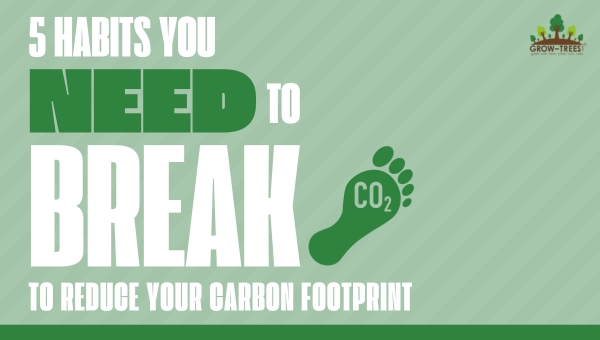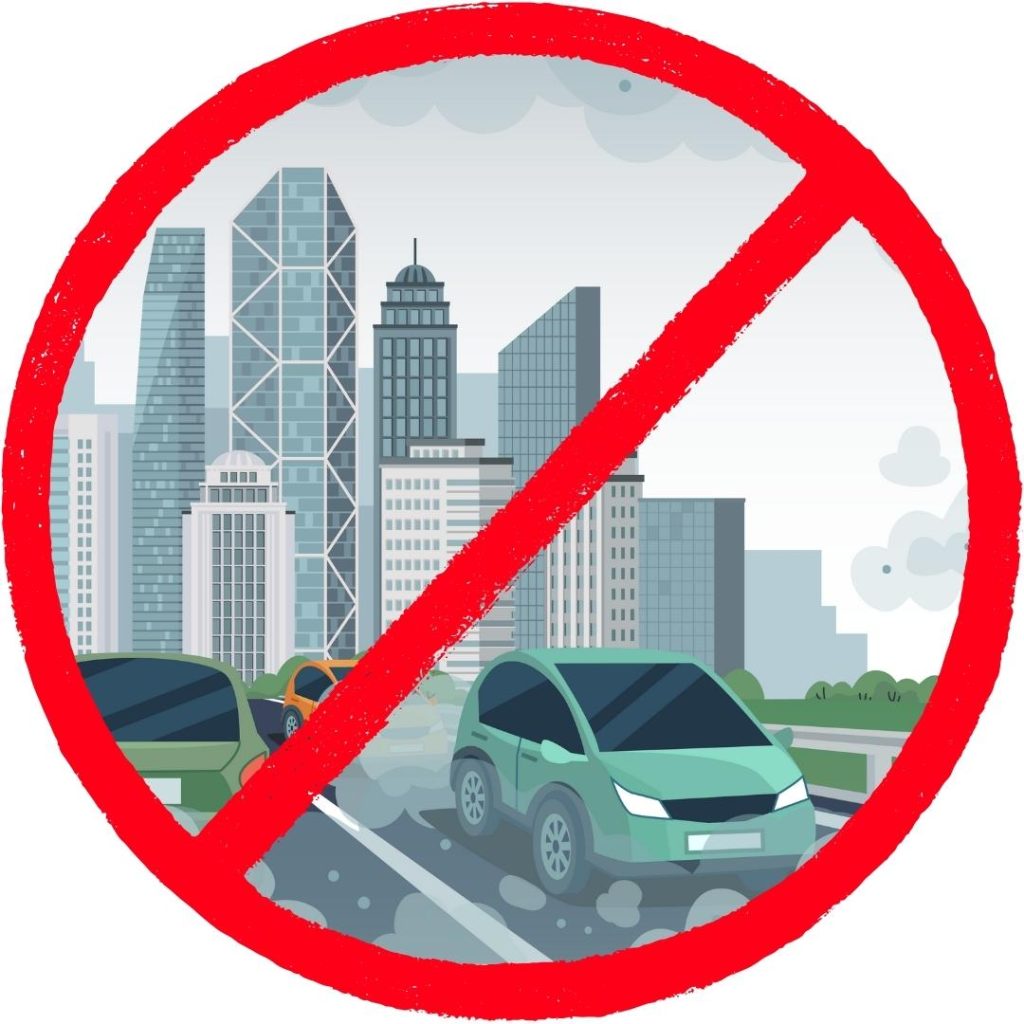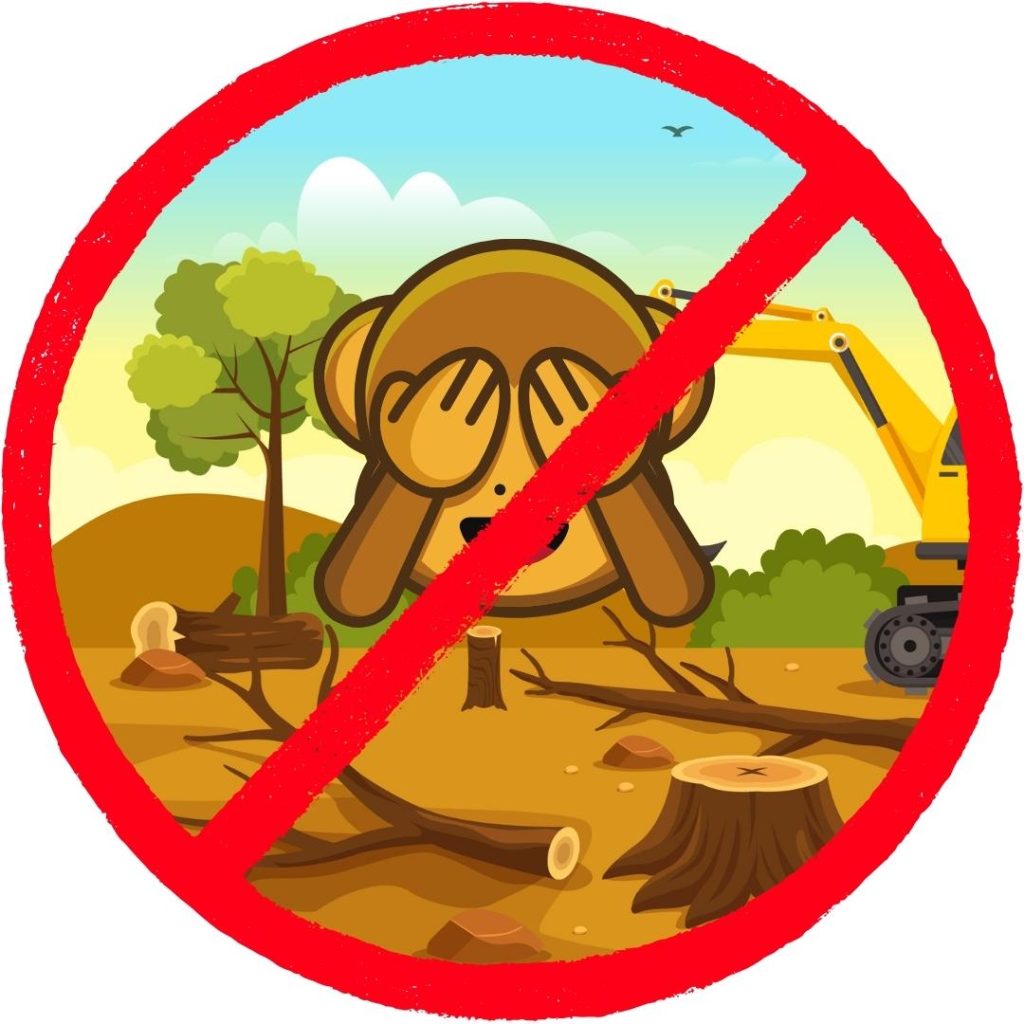Climate change is a pressing concern that influences our daily lives. While many of us are eager to make a positive impact, we might not be sure where to begin. Often, our seemingly “harmless” everyday habits can negatively affect the environment. Let’s get some perspective on how some of our actions increase our carbon footprint.
What is a Carbon Footprint?
A carbon footprint represents the sum total of greenhouse gas emissions associated with the production of an item or the execution of an activity. A person’s carbon footprint is the combined total of the products they buy and the activities they undertake. Carbon emissions are directly linked to global warming (more recently coined as, global boiling).
Let’s explore 5 habits that you need to break to reduce your carbon footprint and lead an environmentally conscious lifestyle:
1. Don’t Leave the Tap Open While Brushing Your Teeth:
Leaving the tap running while brushing your teeth might seem like a small, harmless act, but it wastes a significant amount of water. As they say, “Bund bund se sagar banta hai”. By simply turning off the tap while you brush your teeth, you can save litres of water each day and reduce the energy required to treat and pump that water.
2. Don’t Support Fast Fashion:
The fashion industry is one of the largest contributors to pollution, with vast amounts of water, energy, and resources used in the production of clothing. Instead of purchasing low-quality garments that quickly go out of style, consider investing in timeless, high-quality pieces or explore sustainable fashion brands that prioritise eco-friendly materials and ethical production practices.
Sustainable fashion brands often prioritise the use of natural dyes that are biodegradable. Unlike synthetic dyes that can persist in the environment for years, natural dyes break down naturally and do not contribute to long-term pollution.
3. Don’t Waste Fuel:
Over-reliance on personal vehicles contributes significantly to carbon emissions. Consider alternatives such as carpooling, biking, walking, or using public transportation whenever possible. These options not only reduce your carbon footprint but also help alleviate traffic congestion and improve air quality in your community. If you do need to drive, the use of electric vehicles or hybrid cars can further reduce your environmental impact.
4. Don’t Use Single-Use Plastic:
Single-use plastics are one of the most notorious contributors to pollution in our oceans and landfills. Consider making a conscious effort to reduce your plastic consumption by opting for suitable alternatives. Carry a tote bag for shopping trips, keep a compact reusable water bottle with you on the go. If you often order food to your workplace, carry a bamboo straw or a cutlery kit in your bag. Additionally, support businesses and products that are committed to reducing plastic waste and explore compostable or biodegradable options when available.
5. Don’t Turn a Blind Eye to Important Environmental Issues:
Staying informed and engaged in environmental issues is crucial for creating positive change that directly impacts our lives. When forests are lost to deforestation, we experience hotter temperatures and disrupted weather patterns, making our daily lives less comfortable and potentially more dangerous. Habitat loss not only threatens the diverse wildlife that enriches our planet but also disrupts ecosystems that provide essential services like clean water and air. Climate change, a real and growing threat, can affect us and future generations by intensifying extreme weather events, causing rising sea levels that threaten coastal communities, and altering the availability of resources like food and water. To protect our well-being, it’s essential to stay informed and take action to address these critical environmental challenges.
Now, that you know what not to do, here’s what you should do:
You can offset your entire life’s worth of carbon emissions simply by planting trees. Trees are vital carbon sinks. A large tree inhales around 20.3 kgs of CO2 annually and exhales enough oxygen to suffice a family of four a year. To offset your carbon footprint, plant a tree with Grow-Trees.com.
We enable you to plant trees from the comfort of your home. You can even dedicate a tree to friends, family and employees on any occasion or milestone with a personalised eTreeCertificate®.
Reducing your carbon footprint doesn’t require drastic lifestyle changes. Remember, it’s not about being perfect but making conscious choices that align with the well-being of our planet and future generations.
Your contribution, no matter how big or small, will create a positive impact.





